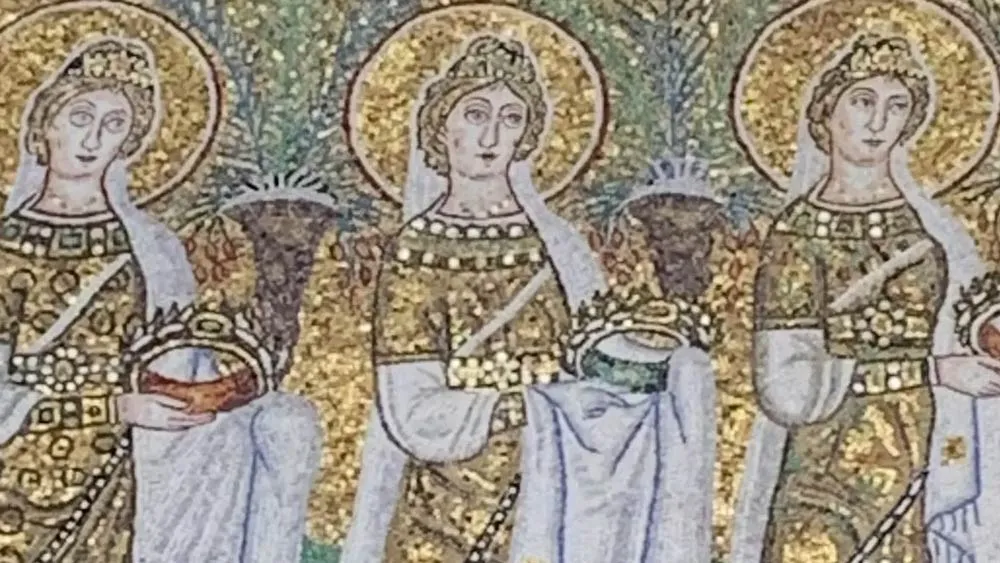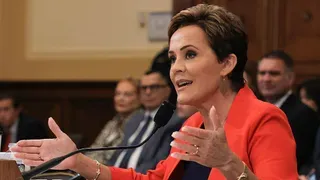February 25, 2013
UK's Accused Cardinal Resigns Post as Archbishop
Jason St. Amand READ TIME: 4 MIN.
Cardinal Keith O'Brien, Britain's highest-ranking Catholic leader, said Monday he wouldn't take part in the conclave to elect the next pope after being accused of improper conduct with priests - an unprecedented first head to roll in the mudslinging that has followed Pope Benedict XVI's decision to resign.
Benedict accepted O'Brien's resignation as archbishop of St. Andrews and Edinburgh - submitted back in November because he is due to turn 75 next month, the normal retirement age for bishops. But simultaneously, O'Brien issued a statement Monday saying he would also skip the conclave because he didn't want to become the focus of media attention at such a delicate time for the church.
O'Brien has said through his spokesman that he is contesting allegations made Sunday in a British newspaper that three priests and a former priest have filed complaints to the Vatican alleging that the cardinal acted inappropriately with them. The Observer newspaper did not name the priests, but it said their allegations date back to the 1980s. There were no details about the alleged inappropriate behavior.
It was the first time that a cardinal has said he was staying away from a conclave because of personal scandal, and comes in the wake of a grass-roots campaign to shame another cardinal, retired Los Angeles Cardinal Roger Mahony, into refraining from participating because of his role protecting sexually abusive priests.
Mahony, however, has said he will participate in the voting for the new pope.
With O'Brien's decision and the illness of an Indonesian cardinal, there are expected to be 115 cardinals under age 80 who are eligible to vote in the conclave.
Separately Monday, Benedict changed the rules of the conclave, allowing cardinals to move up the start date if all of them arrive in Rome before the usual 15-day waiting period between the end of one pontificate and the start of the conclave. Benedict signed a legal document, issued Monday, making some changes to the 1996 Vatican law governing the election of a new pope. It was one of his last acts as pope before resigning Thursday.
Benedict appointed the three men last year to investigate the origins of leaks of the pope's documents, and they had wide-ranging powers to question cardinals. The leaked documents revealed petty wrangling, corruption, cronyism and even allegations of a gay plot at the highest levels of the Catholic Church. The pope's butler was convicted of aggravated theft in October for having stolen the papers and given them to a journalist who then published them in a blockbuster book.
While the three cardinals cannot share the full contents of their investigation, it's unclear if they could give subtle hints about potential papal candidates.
O'Brien's decision to remain home rather than participate in the conclave made him the first head to roll in the remarkable two weeks since Benedict, 85, stunned the world and announced he was becoming the first pope in 600 years to resign. The pope said he simply didn't have the "strength of mind and body" to carry on.
The Vatican confirmed that O'Brien had resigned as archbishop of Saint Andrews and Edinburgh but insisted that the accusations against him had nothing to do with his resignation. The Vatican said the pope accepted the resignation on Feb. 18 under canon law due to O'Brien's age; he turns 75 on March 17. The Vatican spokesman, the Rev. Federico Lombardi, refused to say whether the allegations had any effect on Benedict's decision to accept O'Brien's resignation, saying merely that Benedict was clearing his tasks before retiring himself.
O'Brien said in a statement that he is in "indifferent health" and had offered his resignation last November.
"Looking back over my years of ministry: For any good I have been able to do, I thank God. For any failures, I apologize to all whom I have offended," O'Brian said.
"I do not wish media attention in Rome to be focused on me - but rather on Pope Benedict XVI and on his successor," O'Brien said. "However, I will pray with them and for them that, enlightened by the Holy Spirit, they will make the correct choice for the future good of the church."
During a briefing with reporters at the Vatican last week, a Vatican historian, Ambrogio Piazzoni, was asked about the campaign to keep Mahony away from the voting because he covered up sexual abuse by priests. Piazzoni said while in the past some cardinals have been impeded either by illness or by interference from their governments, none has stayed away because of a stain on his own reputation.
He noted that any decision would have to be approved by the full College of Cardinals, given that the main duty of a cardinal is to vote in a conclave.
"The thing that characterizes a cardinal is to be an elector of the pope," he told reporters
O'Brien's decision to skip the conclave is far different from that of Cardinal Bernard Law, who was forced to resign as archbishop of Boston in 2002 when the U.S. sex abuse scandal erupted. Law, accused of having covered up the actions of pedophile priests, participated in the conclave that elected Benedict and kept a plum job of archpriest of one of Rome's main basilicas until his retirement.



